Tragedy in Nigeria: Vigilante Killed Amid Rising Tensions Between Farmers and Herders
By Xhyongo Sokoto, The Nigeria Times
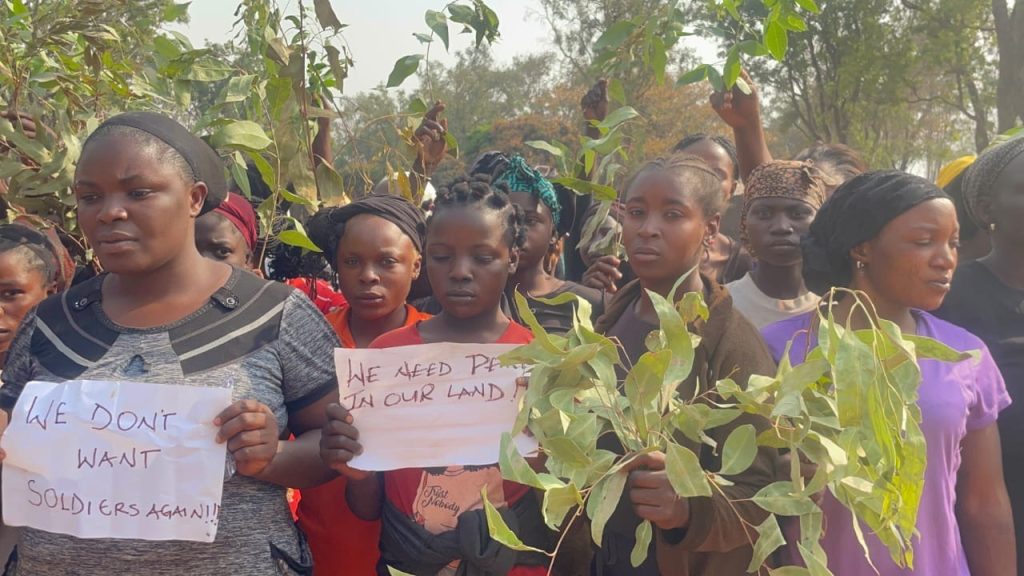
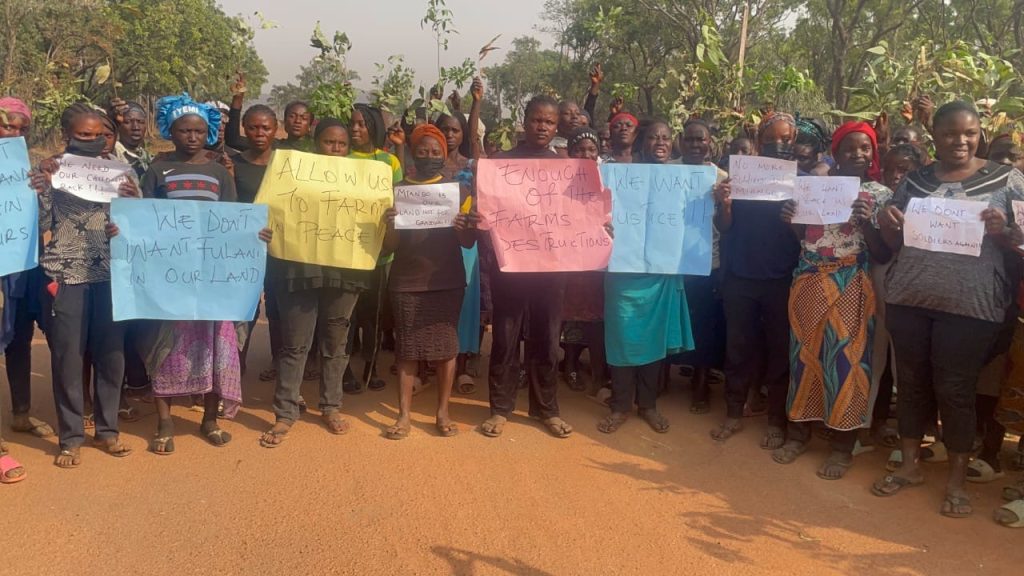
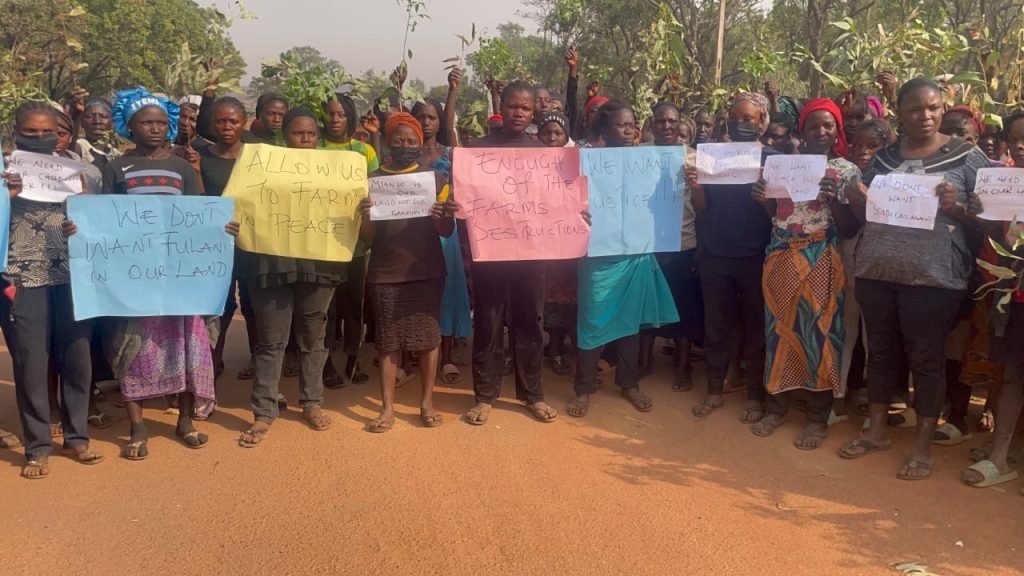
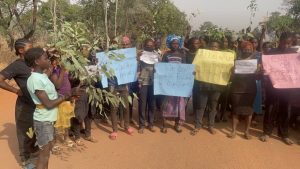
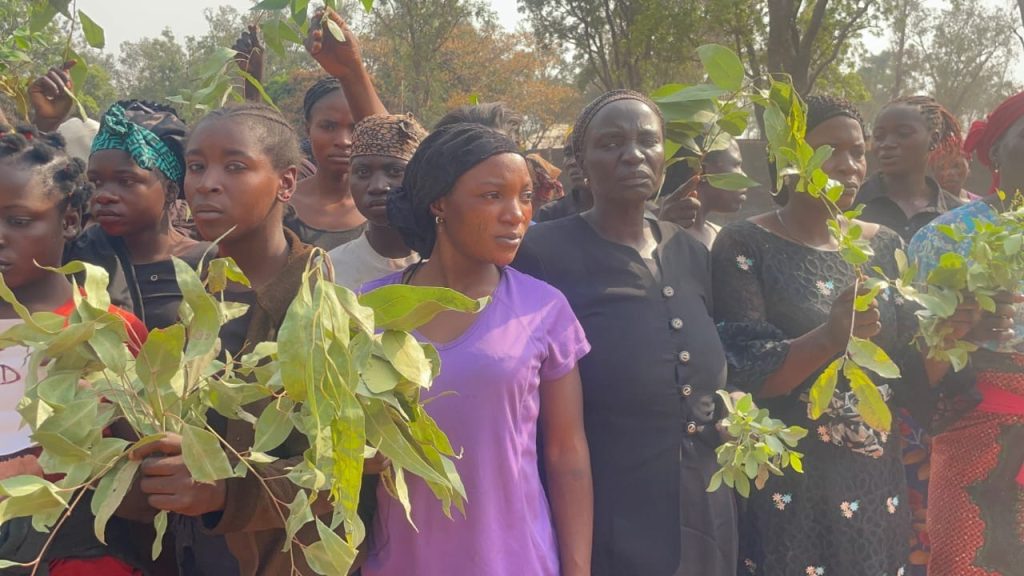
On Armed Forces Remembrance Day, a day meant to honor those who serve, Miango District in Plateau State witnessed another tragedy underscoring its deepening security crisis. Chief Daniel Chega, the Paramount Ruler of Miango, has decried the brutal killing of Adamu Agash, a local vigilante officer, by suspected Fulani extremists while he worked on his irrigation farm in Nzharivo Village. Shockingly, the attack occurred in the presence of Nigerian soldiers stationed nearby, leaving residents outraged and demanding justice.
According to Chief Chega, Agash urged his children to flee, believing the soldiers’ presence would safeguard him. Yet, the attackers struck him down with machetes, inflicting fatal head injuries. This tragedy, along with the injury of three other farmers, has once again exposed the vulnerability of local Christian farming communities and the perceived failure of security forces to protect them.
The killing has sparked a wave of protests, particularly from Rigwe women who took to the streets demanding justice and the removal of both Fulani herders and the soldiers stationed in their communities. “We don’t want Fulani and the soldiers here,” they chanted, citing persistent attacks and accusing the military of bias. However, their peaceful demonstration was met with tear gas, and several women, including a pregnant protester, sustained injuries.
At the government clinic in Nzharivo, 30-year-old farmer and carpenter Zibe Joseph recounted his ordeal as he lay recovering from machete wounds inflicted by five attackers. “They came at me on the farm with machetes and knives,” he said. Danjuma Audu, the clinic’s officer in charge, revealed that over 20 residents have been treated for bullet and machete injuries since 2020, highlighting the dire lack of medical supplies to address the ongoing crisis.
Rigwe land, which spans Plateau and Southern Kaduna states, has been a target of relentless attacks by suspected Fulani extremists since 2016, resulting in over 2,000 deaths and countless displacements. These attacks, often aimed at Christian farming communities, have fueled deep mistrust and further strained relationships between locals and herders.
His Royal Highness Rev. Ronku Aka (Rtd), the Paramount Ruler of Rigwe Land, strongly condemned the killing of Agash and criticized Operation Safe Haven (OPSH), the military task force tasked with maintaining peace, for its alleged bias. “The same urgency used to arrest my people should be applied to apprehend those who killed this gallant man,” HRH Ronku Aka declared, calling for the immediate release of detained Rigwe individuals and a thorough investigation into the murder.
Mary Phar Irigwe, the National Women’s Leader, echoed these frustrations, condemning the humiliation of protesters by soldiers during the peaceful demonstration. “We are demanding justice and protection, not hostility,” she said.
Human rights activist Gata Moses also weighed in, accusing the military of negligence and bias. “The military’s failure to protect vulnerable communities only perpetuates the cycle of violence. Justice is non-negotiable,” he emphasized.
Despite the tensions, community leaders continue to stress the importance of dialogue and the 2022 peace agreement between herders and farmers. “Restoring trust and ensuring long-term stability must remain a priority,” HRH Ronku Aka urged, calling on Governor Caleb Manasseh Mutfwang and international stakeholders to intervene.
Kyle Abts, Executive Director of the International Committee on Nigeria (ICON), highlighted the global implications of the crisis. “The ongoing violence against Christian farming communities in Plateau State is a stark reminder of the urgent need for accountability. Without justice, peace will remain elusive,” Abts noted.
As Miango mourns yet another loss, the call for decisive action, both locally and internationally, grows louder. For many, the tragic death of Adamu Agash symbolizes the broader struggle for justice, security, and dignity in a region yearning for peace.
